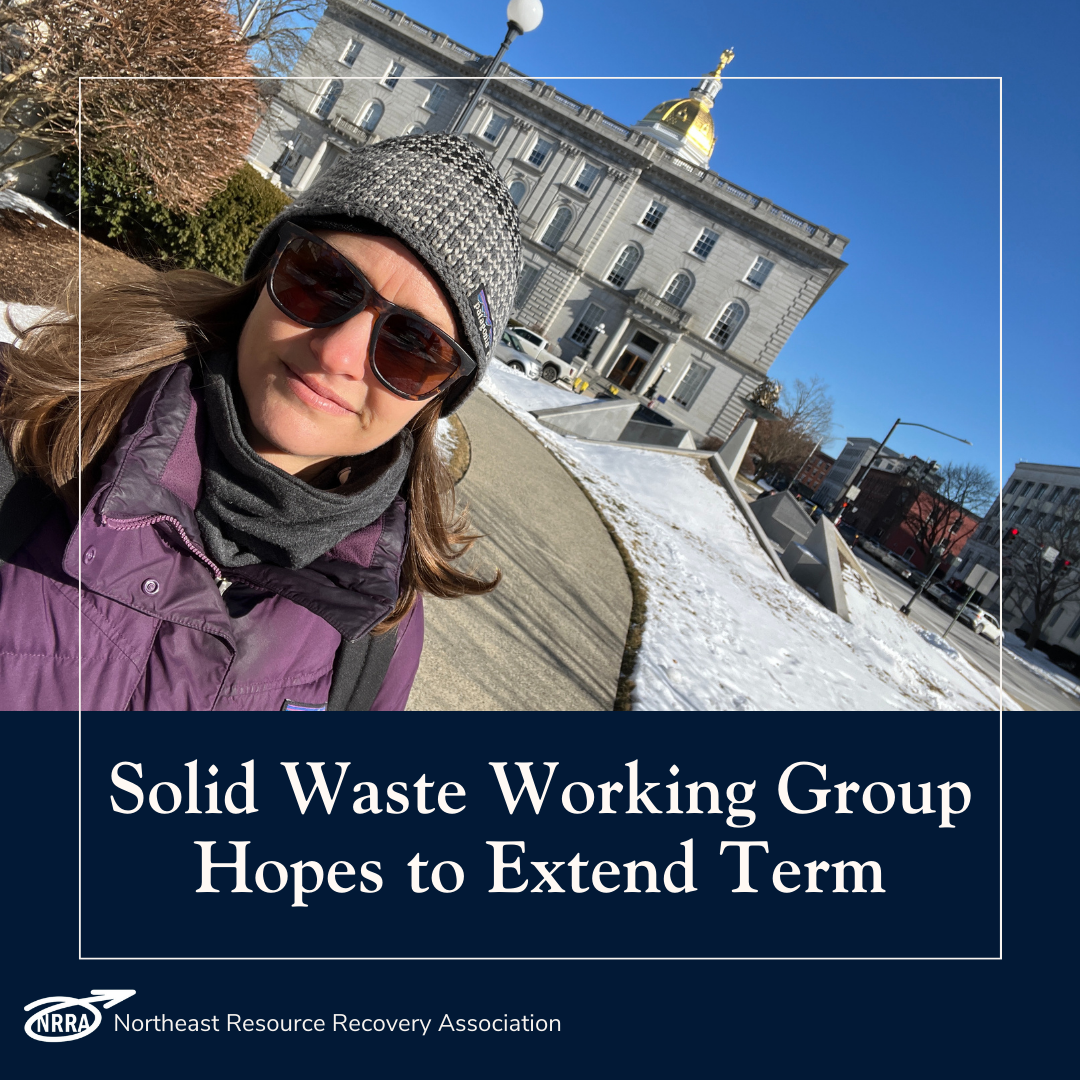Solid Waste Working Group Hopes to See Term Extended
This year, there are several bills working their way through the New Hampshire legislature that have to do with solid waste and recycling (we are following them on our Policy & Legislation page!) And though NRRA does not take a position for or against any legislation, we do occasionally provides testimony about proposed legislation to educate elected officials about how that legislation might impact NRRA Member communities.
Last week, NRRA's executive director, Reagan Bissonnette, testified in front of the House Environment and Agriculture Committee regarding HB355, which would extend the end of the term of the NH Solid Waste Working Group, which was formed to advise the NH Department of Environmental Services (NHDES) on planning for NH’s solid waste future. NRRA has had a representative on the SWWG since its formation in 2021.
During the time the SWWG has been active, it has supported the State of New Hampshire and NHDES with advancing recycling and waste reduction.
The following are some examples of the actions of the SWWG under Chair Rep. Karen Ebel’s leadership.:
- Supported the introduction and passage of HB 1386, banning the disposal of lithium-ion batteries in solid waste facilities, as well expanding the types of electronic waste banned from disposal in solid waste facilities. The bill also requires towns, solid waste districts and owners/operators of landfills and incinerators to make educational materials available on the prohibition. The ban becomes effective July 1, 2025.
- Supported the introduction and passage of two bills to advance food waste diversion, both of which were incorporated into and passed with the state budget. HB 300 prohibited the disposal of food waste by one-ton generators under specified circumstances, and HB 462 appropriated $1 million to the Solid Waste Management Fund (SWMF), at least 50% of which will support food waste management projects.
- Supported the introduction and passage of HB 1649, banning intentionally added PFAS to specified consumer products sold in New Hampshire. The product ban becomes effective on January 1, 2027.
- Supported the introduction and passage of HB 1371, allowing municipalities to include a section on solid waste reduction goals in their master plans. Such a waste reduction section may include goals for increasing reuse, recycling, composting, or hazardous waste and electronic waste management. The bill became effective September 24, 2024.
These actions support municipalities to reduce their costs associated with waste disposal, increase safety, and increase grant funding available to advance further waste reduction.
Learn more about this and other bills related to solid waste and recycling.
